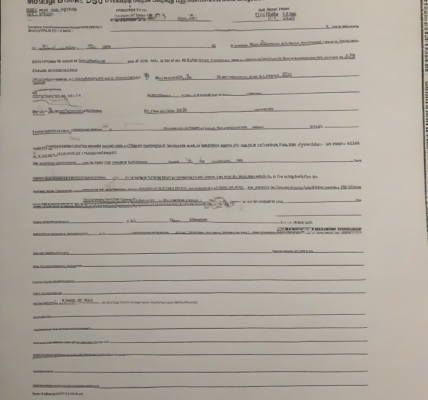CU Members Mortgage: A Comprehensive Guide to Navigating Credit Union Home Loans
Credit unions (CUs) offer a compelling alternative to traditional banks for securing a mortgage. Often characterized by member-centric philosophies and competitive interest rates, CU mortgages can be a smart financial move for many homebuyers. This comprehensive guide delves into the intricacies of CU member mortgages, exploring their advantages, disadvantages, the application process, and what to consider before applying.
Understanding Credit Union Mortgages
Credit union mortgages, or CU mortgages, are home loans provided by credit unions rather than commercial banks. Credit unions are not-for-profit financial cooperatives owned by their members. This fundamental difference shapes their approach to lending, often resulting in more personalized service and potentially better loan terms. Because they prioritize member satisfaction, they may be more willing to work with borrowers who might be deemed higher-risk by traditional lenders.
- Member Focus: Credit unions prioritize their members, often offering more personalized service and flexibility.
- Competitive Rates: CU mortgages frequently boast competitive interest rates compared to banks.
- Lower Fees: In many cases, credit unions charge fewer fees associated with mortgages.
- Flexible Lending Criteria: Credit unions might be more lenient with certain aspects of the application process, considering factors beyond a rigid credit score.
Advantages of CU Members Mortgages
- Potentially Lower Interest Rates: Credit unions often offer interest rates comparable to, or even lower than, those offered by major banks.
- Personalized Service: The member-centric approach of credit unions leads to more personalized attention and support throughout the mortgage process.
- Lower Fees: Reduced or waived fees, such as application fees or appraisal fees, can save borrowers significant money.
- Flexible Loan Options: CU’s might offer a wider range of loan programs tailored to individual circumstances, including options for first-time homebuyers, those with less-than-perfect credit, or those seeking unique loan structures.
- Community Involvement: Many credit unions actively support their local communities, reinvesting profits to benefit their members and the surrounding area.
Disadvantages of CU Members Mortgages
- Limited Availability: Credit unions have a smaller reach than major banks, meaning not all geographic areas will have access to a wide variety of CU mortgages.
- Smaller Loan Amounts: While this is not always the case, some credit unions may offer smaller maximum loan amounts compared to larger banks.
- Less Variety of Loan Products: The selection of loan types and options might be more limited than what is available at a large commercial bank.
- Potential for Longer Processing Times: While generally efficient, the smaller size of credit unions can sometimes lead to slightly longer processing times compared to larger institutions.
- Membership Requirements: Borrowers must often meet specific membership criteria to be eligible for a CU mortgage, which might involve working for a specific employer, living within a specific geographic area, or being a member of a particular organization.
The CU Mortgage Application Process
The application process for a CU mortgage generally follows a similar structure to that of traditional banks, but with a potentially more personalized touch. Key steps typically include:
- Pre-Approval: Getting pre-approved provides an estimate of how much you can borrow and strengthens your position when making an offer on a home.
- Application Submission: Gather necessary documentation (income verification, credit report, employment history) and submit your complete application.
- Loan Underwriting: The credit union reviews your application, financial information, and credit history to assess your risk.
- Appraisal: An independent appraiser assesses the value of the home to ensure it aligns with the loan amount.
- Closing: Once all conditions are met, you’ll sign the loan documents and finalize the purchase of your home.
Documents Needed for a CU Mortgage Application
- Proof of Income: Pay stubs, W-2 forms, tax returns.
- Credit Report: Obtain a copy of your credit report from a reputable agency.
- Bank Statements: Demonstrating your savings and financial stability.
- Employment Verification: A letter from your employer confirming your employment status.
- Down Payment Funds: Proof of funds available for your down payment.
- Identification: Driver’s license, passport, or other official identification.
Factors Affecting Your CU Mortgage Approval
Several factors influence your chances of getting approved for a CU mortgage. These include:
- Credit Score: A higher credit score generally leads to more favorable interest rates and better loan terms.
- Debt-to-Income Ratio (DTI): Lenders assess your DTI to determine your ability to manage monthly mortgage payments.
- Down Payment: A larger down payment often results in better loan terms and lower interest rates.
- Employment History: A stable employment history demonstrates your ability to repay the loan.
- Type of Mortgage: Different mortgage types (conventional, FHA, VA) have varying eligibility requirements.
Comparing CU Mortgages with Traditional Bank Mortgages
Choosing between a CU mortgage and a bank mortgage requires careful consideration of your individual circumstances and priorities. While both offer home financing, their approaches differ significantly.
| Feature | Credit Union Mortgage | Bank Mortgage |
|---|---|---|
| Interest Rates | Potentially lower | Potentially higher |
| Fees | Often lower | Often higher |
| Service | More personalized | Less personalized |
| Loan Options | May have less variety | Typically wider variety |
| Availability | More limited geographically | Widely available |
Choosing the Right CU Mortgage for Your Needs
Selecting the appropriate CU mortgage depends on several factors, including your financial situation, credit history, and long-term goals. Consider these key elements:
- Interest Rate: Compare rates from different credit unions and banks to ensure you’re getting the best possible deal.
- Loan Term: Choose a loan term that aligns with your financial goals and repayment capacity.
- Loan Type: Determine which mortgage type (e.g., fixed-rate, adjustable-rate, FHA, VA) suits your needs best.
- Fees: Carefully review all associated fees to avoid unexpected costs.
- Repayment Schedule: Understand the repayment schedule and ensure it fits your budget.
Frequently Asked Questions (FAQs)
- Q: Do I need to be a member of a credit union to get a mortgage? A: Typically, yes. Most credit unions require membership to access their mortgage services.
- Q: What is the typical down payment for a CU mortgage? A: Down payment requirements vary depending on the loan type and the credit union’s policies. It could range from 3% to 20% or more.
- Q: How long does the CU mortgage application process take? A: The time it takes can vary, but it generally takes several weeks to complete.
- Q: Are credit unions more lenient with borrowers who have less-than-perfect credit? A: Some credit unions may be more willing to work with borrowers who have less-than-perfect credit, but approval is not guaranteed.
- Q: Can I refinance my existing mortgage with a credit union? A: Yes, many credit unions offer mortgage refinancing options.




